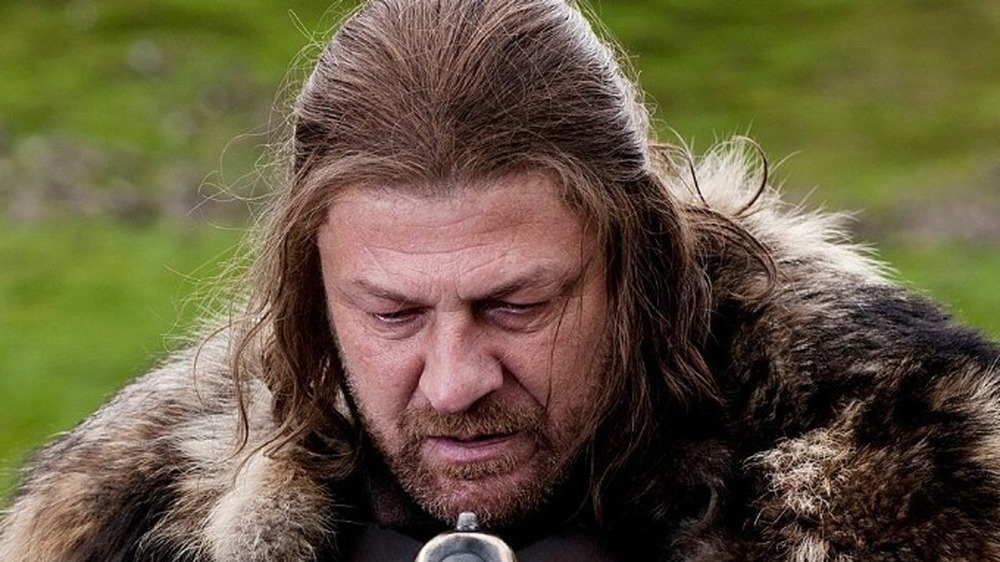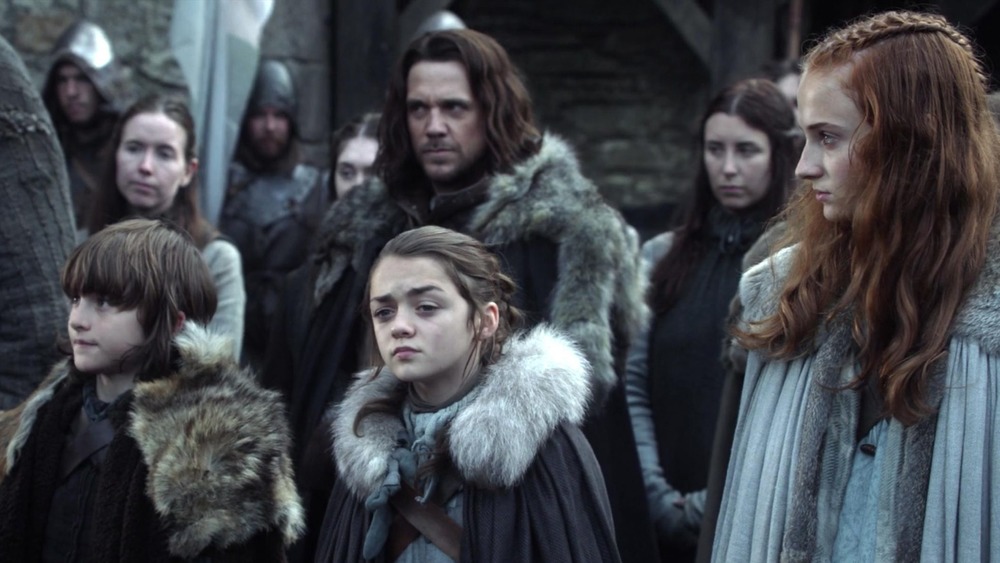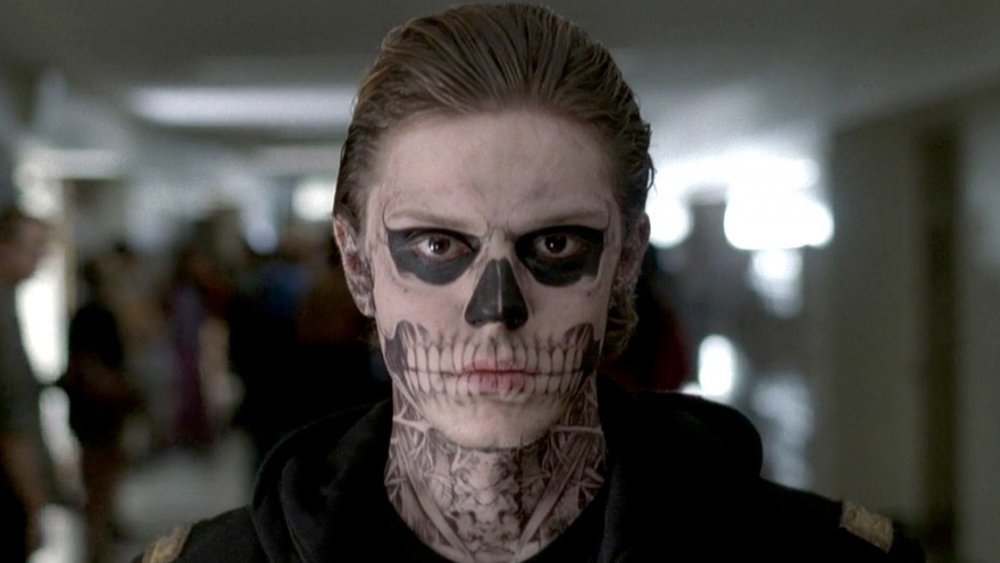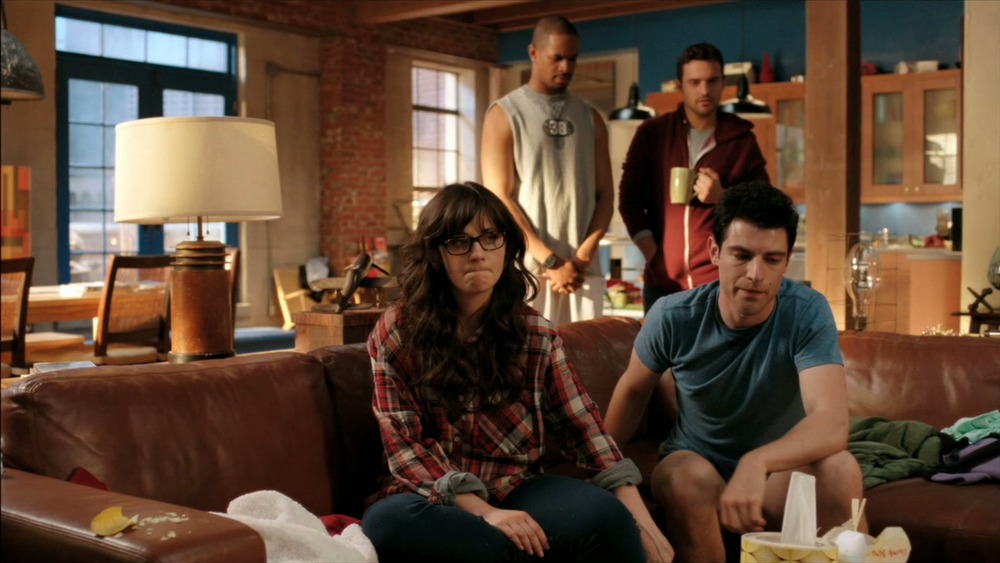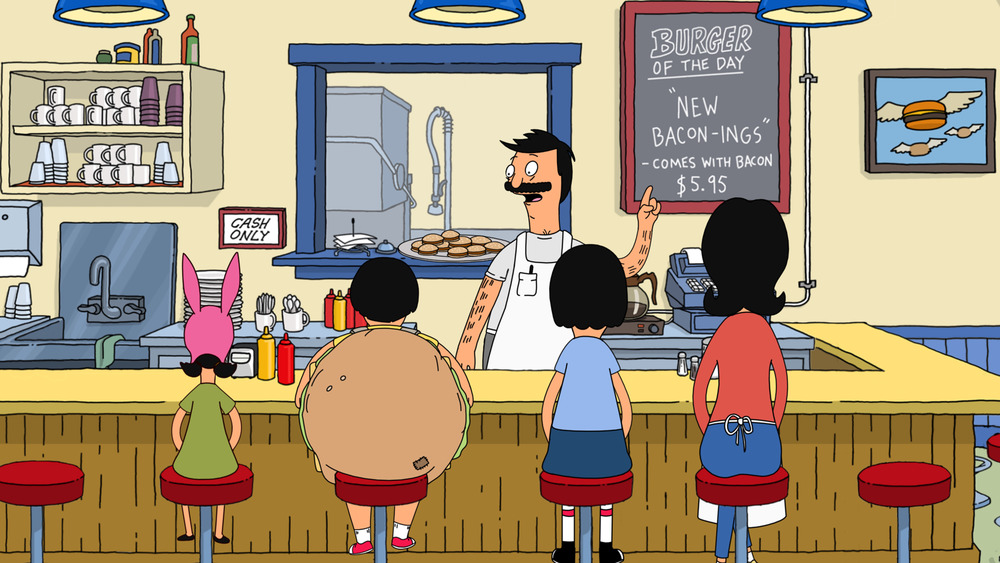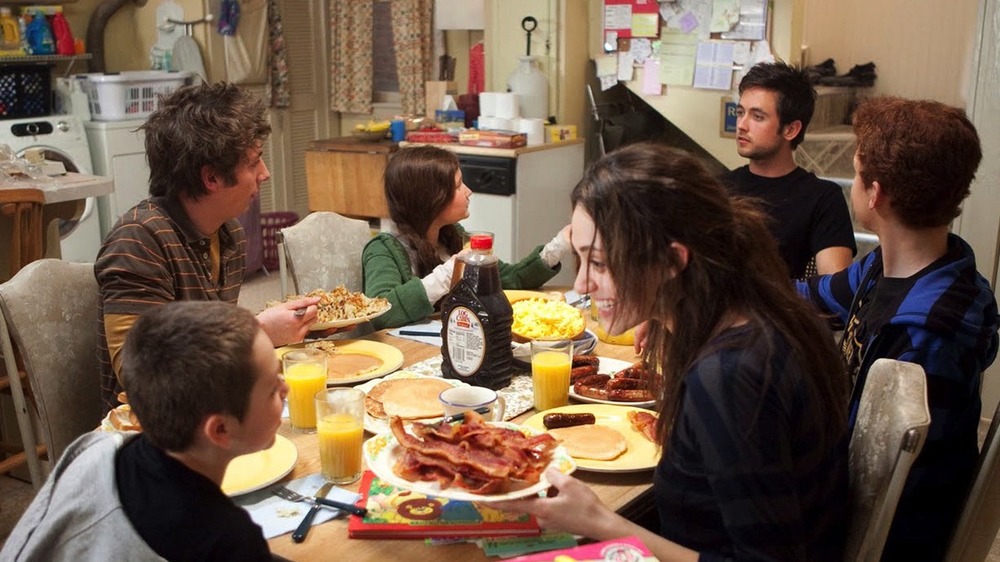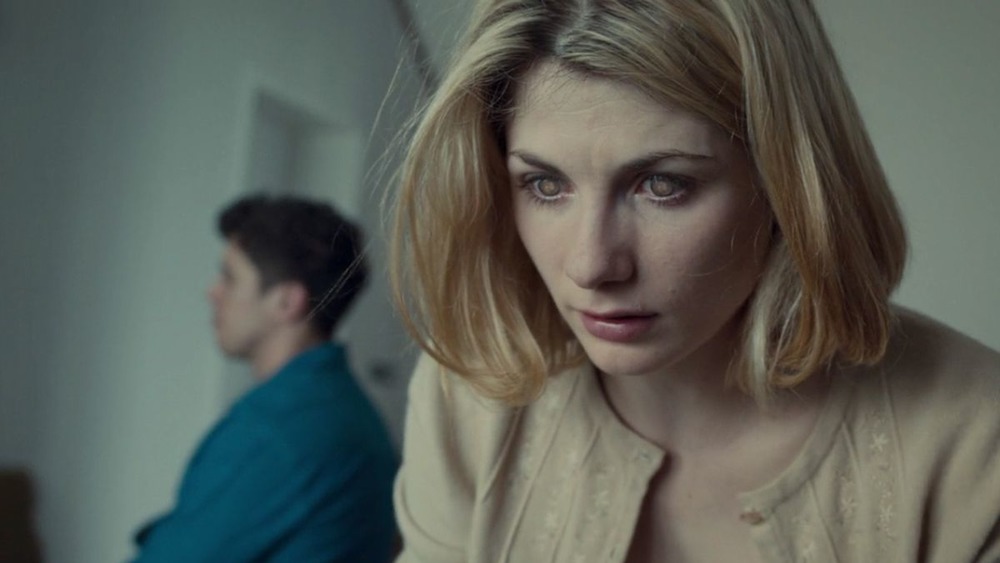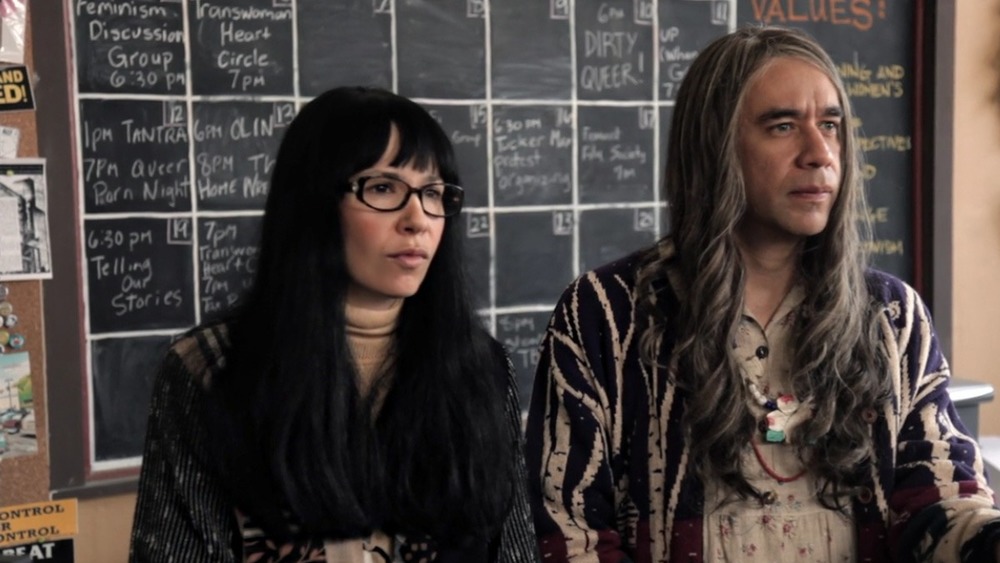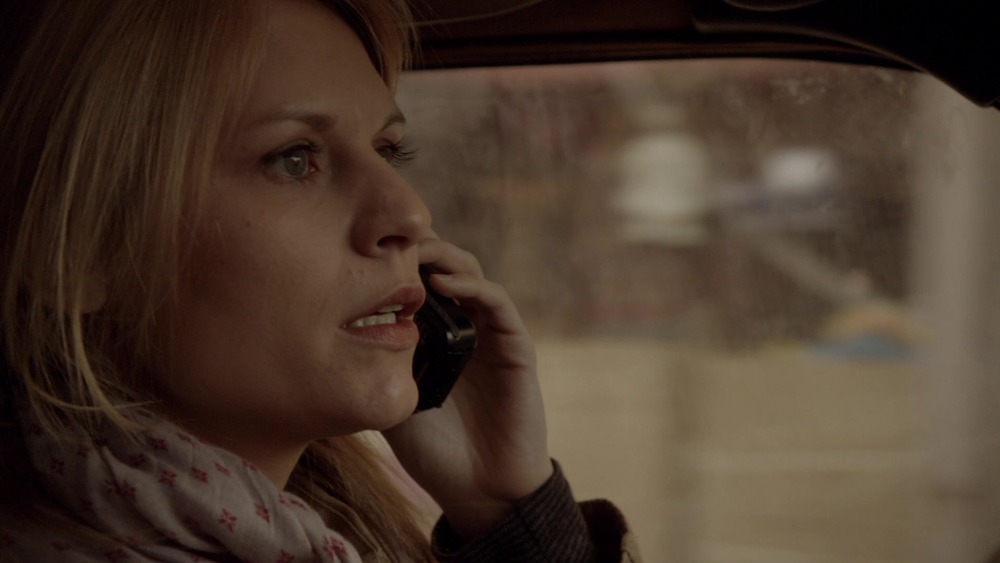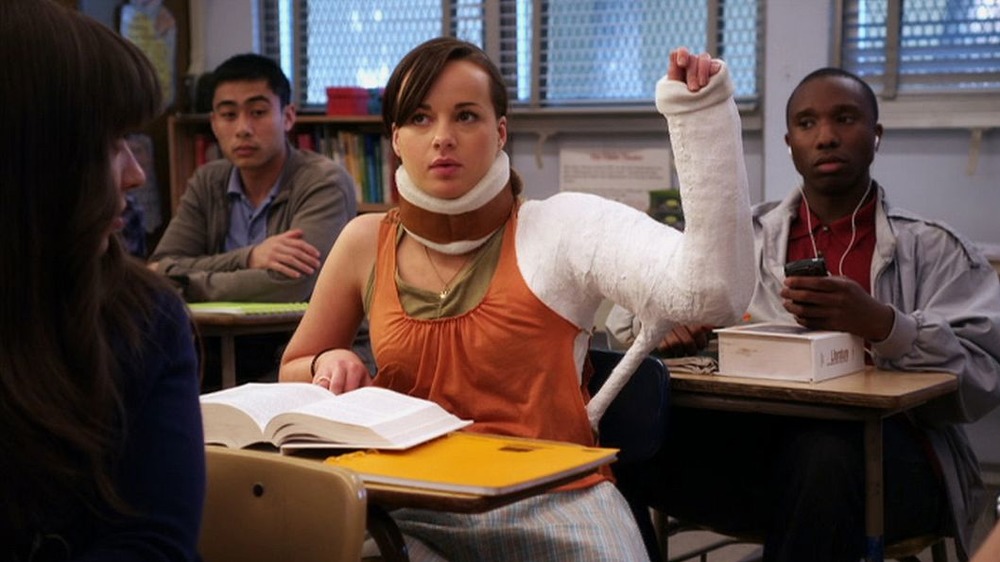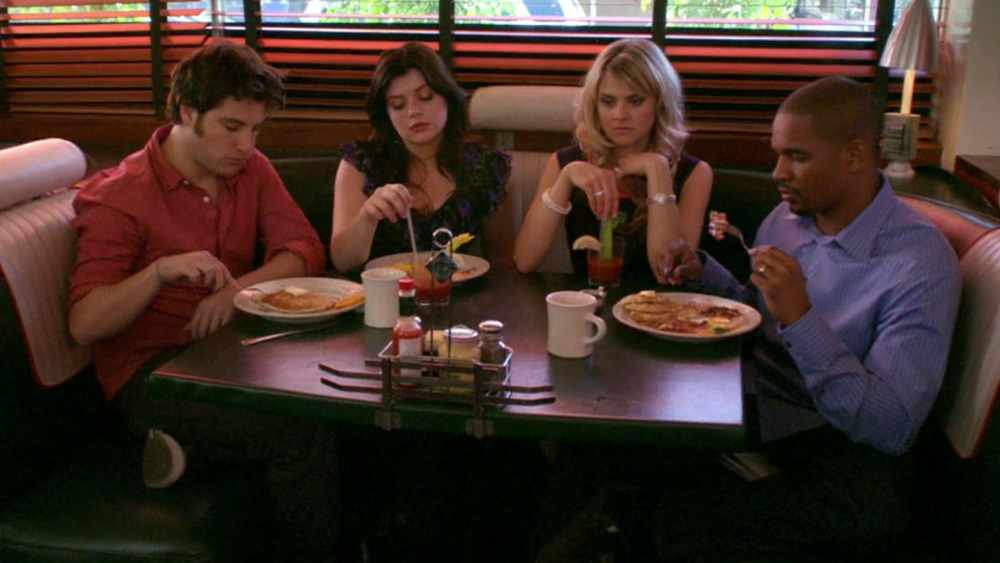Our Favorite Shows Turning 10 In 2021
We may receive a commission on purchases made from links.
To say that television has changed in the last 10 years would be an understatement. A decade ago, Netflix hadn't even released its first original series for streaming. Networks were only just beginning to see the potential to market their shows on increasingly popular social media platforms like Twitter. 2011 also occurred during the Second Golden Age of Television, also known as "Peak TV," with accomplished actors and screenwriters pursuing more experimental or risky projects on the small screen. Shows ranging from single-camera sitcoms like New Girl to high fantasy dramas like Game of Thrones all benefited from this shift, even if not every series was afforded the same levels of success.
From Portlandia to Homeland, plenty of shows that first premiered a decade ago are still relevant today. Thanks to viral video platforms like TikTok, some shows from 2011 are finding new life as memes. Not all of our favorite shows have stayed on air or maintained the same level of quality they had when they first premiered, but many will influence TV in the years to come.
Discover our 10 favorite shows that turned 10 in 2021.
Game of Thrones redefined "appointment viewing"
Game of Thrones, which first aired on HBO in April 2011, arguably shaped the last decade of scripted television. The series, which was based on George R.R. Martin's wildly popular A Song of Ice and Fire novels, quickly gained a reputation for being one of the most anticipated and expensive shows on television.
Although the series' major plot points could be found in Martin's novels, Thrones also ushered in an era of spoiler culture, where revealing an episode's highlights went from being a small social slight to a full-blown moral crisis. If you didn't want to be spoiled, you either had to watch the episode as it aired or avoid all social media until you had the chance to watch.
I'm a millennial/Gen-Z cusp who came of age alongside TiVo and streaming services, so Thrones was one of the first shows my friends and I would watch together at the same time each week. Of course, this is the way people watched television for decades before Netflix began releasing entire series all at once with House of Cards in 2013. Still, David Benioff and D.B. Weiss' Westeros changed the scale, budget, and cultural impact of shows that followed.
In the 10 years after the show first premiered, Game of Thrones' young stars went from relative obscurity to household names. While Thrones was far from perfect (looking at you, season 8), it's hard to deny just how important the show was when it aired.
American Horror Story set the stage for horror TV shows to come
Ten whole years after American Horror Story first premiered, it's almost difficult to imagine the horror TV genre without series creators Ryan Murphy and Brad Falchuk. The horror anthology series laid the groundwork for later anthologies like True Detective or Haunting of Hill House, which follow different storylines each season in loosely connected universes.
Even after a decade and nine seasons under the show's belt, American Horror Story's first season, Murder House, still ranks as one of its best – plus, who can forget Dylan McDermott's infamous window scene? AHS' anthology format helped viewers recognize the versatile acting abilities of its cast, many of whom reappear in various roles throughout the seasons.
For season 1's Evan Peters (WandaVision, X-Men: Days of Future Past), his portrayal of troubled teen ghost Tate Langdon was a breakout role. Peters, Sarah Paulson, and Jessica Lange are considered mainstays in the American Horror Story universe, with Peters appearing in every season except season 9.
Although little is currently known about season 10, Peters, Paulson, Frances Conroy, and Kathy Bates are all set to return. If the new episodes are anything like the thrills Falchuk and Murphy have put us through in the last 10 years, I'll be watching from the edge of my seat.
New Girl feels as relevant today as it did 10 years ago
Sitcoms tend to be products of their time. This can be an asset when quickly trying to establish a show's tone, but can also make a show feel super dated within a few years. Thankfully, Elizabeth Meriwether's New Girl is as delightful to watch in 2021 as it was when it first premiered in September 2011.
The show's pilot sees its titular protagonist, Jessica Day (Zooey Deschanel), move into an LA loft with three single men: Schmidt (Max Greenfield from Veronica Mars), Coach (Damon Wayans Jr.), and Nick Miller (Jake Johnson of Into the Spider-Verse).
There are only a select few bits that are beginning to feel stale 10 years after the show premiered, like Schmidt's Mitt Romney jokes or the Hillary episode; many more that feel timeless. It also helps that the chemistry between the show's romantic leads, Nick and Jess, was so palpable that Zooey Deschanel and Jake Johnson had to be physically separated for early seasons (not to mention that their first kiss is arguably the best on-screen smooch ever). Over the years, its core characters evolved from flat LA stereotypes to become warm and measured people who made mistakes and deeply cared for one another. That arc is appealing no matter the show's age.
Bob's Burgers is still going strong after 10 years
Bob's Burgers came out of the gate with a bang when it first premiered in 2011 — the first episode saw more than 9 million viewers. It's still producing great episodes and songs like "BM in the PM" and "Buttphone." The show, currently in season 11, is already signed on for seasons 12 and 13.
Bob's Burgers centers on the Belchers, who own and live above a small burger joint. It's hard to single out notable characters in the show, given that each member of the Belcher family is so wonderfully and specifically weird, and voiced by a spectacular cast. The youngest Belcher, Louise (Kristen Schaal from 30 Rock), is one of my favorites, with consistently hilarious deadpans and one-liners in each episode.
The show is also full of great running visual gags. For example, each episode's opening features different storefronts neighboring the burger shop, and there's typically a "Burger of the Day" gag, which is usually a pun on the burger's ingredients (they even made a corresponding cookbook). Bob's Burgers universe and characters have made crossover appearances in shows like The Simpsons, Family Guy, and Archer.
Ultimately, it's hard to describe why Bob's Burgers has succeeded for the last decade other than to say it's fun to watch. Let's hope they keep the laughs going for another 10 years.
Shameless' decade of drama continues
Shameless' British predecessor actually started 7 years prior in 2004 and ended in 2013. The dramedy about working-class culture crossed the pond to Chicago's South Side in 2011, following the Gallagher family as its members navigate life, addiction, and poverty. Stars William H. Macy and Emmy Rossum led the ensemble cast as its wayward patriarch and eldest daughter, respectively.
Over the series's 11 seasons, the Gallaghers quite literally grew up. The younger members of the Gallagher clan were still kids in middle and high school during the show's first season; during Shameless' final two seasons, they were full-blown adults with children, marriages, and jobs.
Shameless was so striking when it came out a decade ago for its raw, unfiltered look at poverty. While lesser shows would've made the Gallaghers' financial situation a cruel punchline, its writers and actors worked together to create a more nuanced portrayal of a family that struggles to stay together.
The world was introduced to Black Mirror for the first time in 2011
Black Mirror, a dystopian sci-fi anthology, started on the UK's Channel 4 in 2011 before being bought by Netflix in 2015. In the 10 years since the show was first released, Black Mirror has become a cultural shorthand for rapidly developing technology and the murky ethical questions that come with it.
Throughout its 10-year tenure, many of Black Mirror's episodes have been met with critical acclaim, and the show has even won 8 Emmys in the last four years. The anthology can be a bit uneven at times, but its cultural significance is undeniable. It's been eerily prescient and scarily close to reality; in a few instances, life imitated art mere days after Black Mirror episodes aired. The show itself was innovative, changing the medium of television with its spin-off choose-your-own-adventure film, Bandersnatch.
The show excels when it focuses less on the logistics of technological advancement and more on how it affects characters' behavior. The episodes that stick with me (season 3's "Nosedive" and "San Junipero," season 2's "Be Right Back") explore just how messy humans can be, even with all the futuristic tidiness of the world all around them. There's usually no clear-cut antagonist in these stories, highlighting the moral ambiguity of the digital age.
Portlandia instantly became a cult classic when it first premiered
Fred Armisen and Carrie Brownstein's sketch comedy show Portlandia made waves when it first aired 10 years ago. The show, which ran until 2018, initially drew from Armisen and Brownstein's ThunderAnt sketches, which were set in Oregon's largest city and poked fun at hipster archetypes. Portlandia quickly became a hit thanks to clips from the show going viral on platforms like YouTube, elevating IFC's reputation for out-there comedy with it.
The show has a mixed legacy. Its popular recurring gag about Women and Women First, a fictional feminist bookstore, drew criticism. The show originally taped those sketches inside a real bookstore and community space called In Other Words, which cut ties with the show in 2016, citing its contribution to gentrification in Portland, use of Armisen's trans femme character as a punchline, and poor treatment of the store and its staff during filming.
Despite the show's real-world hiccups, Portlandia is still lauded for bringing hipster culture to wider audiences and translating the internet's late-2000s voice to TV. The residents of the city that inspired the show are still torn on how Portlandia influenced (or exploited, depending on whom you ask) its culture. Still, many of the show's jokes have proved enduring, like the ever-relevant maxim "put a bird on it."
Homeland was not your traditional spy thriller
There was no dearth of espionage and intelligence thrillers in the 2010s, but Homeland practically reinvented the genre when it first premiered in October 2011. The series starred Claire Danes (Romeo + Juliet) as Carrie Mathison, a CIA officer reassigned to the agency's counterterrorism unit.
The first season still has a 100% fresh rating on Rotten Tomatoes 10 years after its release. Critics and mental health advocates praised Danes' realistic portrayal of a character with bipolar disorder. Mathison's mental state also served as a crucial plot point in several seasons, contributing to narrative unreliability that kept audiences guessing.
At the show's peak, Homeland saw almost 2 million viewers per episode. When the series finally ended in 2020, it brought its protagonist full circle by having her integrity and loyalty to the U.S. questioned. Throughout its tenure, Homeland stood out amongst other espionage dramas by more accurately depicting potential threats to the U.S., rather than the amplified perceived threat many shows and films exploited after 9/11. While the show had set its bar impossibly high with its near-perfect first season, it hopefully will be remembered for changing its genre for the better.
No awkward introductions were necessary for viewers of this comedy series
So many shows take place in high schools, but don't really convey what it's like to be a high schooler. The titular awkwardness of MTV's Awkward, which premiered in July of 2011, does this perfectly. The first season saw Jenna (Ashley Rickards), an unpopular high school student, attempt to navigate life after her peers assume that her freak accident was actually a suicide attempt.
Unlike the Euphorias and Riverdales of the world, the cast members of Awkward look, act, and sound like real teens, reflecting creator Lauren Iungerich's thorough research to achieve authenticity.
The show ran for five seasons, ending in 2016. Awkward received plenty of praise from viewers and critics, with many singling out Rickards' heartfelt portrayal of a teen navigating trauma. It also landed on critics' top 10 lists the year it premiered, and had a 74/100 Metascore on Metacritic.
Happy Endings was brilliant, but short-lived
Happy Endings, a sitcom about six friends in Chicago struggling to adapt when one member of the group leaves another at the altar, was poised to be the next Friends or How I Met Your Mother. The show had a stellar core cast, including Zachary Knighton, Eliza Coupe, Damon Wayans Jr., Adam Pally, Casey Wilson, and Elisha Cuthbert, all of whom had the comedic chops to make the show's premise stand out. I describe this show to friends as HIMYM meets It's Always Sunny in Philadelphia, with the shiny veneer of a network sitcom, bitingly smart rapport, and a healthy dose of absurdity.
It's a testament to both the writers and cast that Happy Endings made a running gag about gagging hilarious. Also, I'm 100% convinced that season 3's "The Incident" was the blueprint for Funny or Die's "Gay of Thrones."
Unfortunately, Happy Endings fell victim to its network's lack of promotion and rescheduling. By the show's second season, it was a critical darling with a hyper-passionate fanbase, but that wasn't enough to save it from cancellation in 2013. Eliza Coupe later told Complex that ABC didn't even use photos of the show's cast to promote the show, calling the show's consequent cancellation "their fault."
If you, like many others, have never heard of Happy Endings, do yourself a favor and stream all three seasons. Then pour one out for this brilliant show's premature demise.
